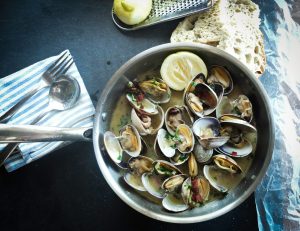Post-Pandemic Food Sovereignty: Nations Prioritizing Self-Sufficiency
The COVID-19 pandemic has exposed the vulnerability of our global food system. Border closures, supply chain disruptions, and panic-buying have highlighted the need for food self-sufficiency. As nations work towards economic recovery, the concept of food sovereignty, where a country prioritizes its ability to produce its own food, has gained traction. In this post-pandemic world, nations are realizing the importance of being self-sufficient when it comes to food and are taking steps to secure their food supply. Let’s delve deeper into the concept of post-pandemic food sovereignty and how nations are prioritizing self-sufficiency.
What is Food Sovereignty?
Food sovereignty is the right of nations to have control over their own food and agriculture policies. It is the ability of a country to produce its own food and feed its population sustainably. This concept goes beyond simply having enough food to eat; it also encompasses issues of food quality, access, and cultural significance of food. It puts the needs and rights of small-scale farmers and producers, as well as local communities, at the center of food systems.
The Post-Pandemic Push for Self-Sufficiency
The COVID-19 pandemic has disrupted global food supply chains, causing food prices to rise and shortages in some countries. The virus has also exposed the dangers of relying on a few dominant suppliers for essential goods like food. As nations went into lockdown, the demand for locally produced food increased, leading to a growing interest in food self-sufficiency. This pandemic-induced crisis has served as a wake-up call for countries to review their food systems and prioritize self-sufficiency.
Nations Prioritizing Food Sovereignty
Cuba
Cuba has been practicing food sovereignty for decades, due in part to an ongoing US trade embargo. On the island, agriculture is seen as a national security issue, and the country has invested in developing its agriculture sector. In response to the pandemic, Cuba has encouraged urban farming, with individuals and communities growing their own food in small backyards and communal plots. This decentralized approach has helped the country maintain a steady food supply during the crisis.
Vietnam
Vietnam, a major rice exporter, has also recognized the importance of food self-sufficiency and has implemented policies to increase domestic production. The country has adopted sustainable agriculture practices to reduce its reliance on imported fertilizers and pesticides. The government has also set targets to reduce rice exports and increase domestic consumption, promoting a more balanced approach to its agriculture sector.
India
India has been working towards food sovereignty and improving the livelihoods of its small-scale farmers for years. The pandemic has reaffirmed the country’s commitment to this goal, with the government announcing a $1.63 billion package to support small farmers and agricultural producers. India has also implemented programs to promote sustainable agriculture practices and encourage local food production to reduce dependence on imports.
The Importance of Food Sovereignty
Food sovereignty is crucial for countries to ensure food security for their citizens. It promotes sustainable agriculture practices, protects the rights of small-scale producers, and fosters community resilience. In the face of future global crises, having a strong local food system will be vital in maintaining food supply and avoiding food shortages.
Challenges to Achieving Food Sovereignty
Implementing food sovereignty policies comes with its own set of challenges. Some of the obstacles countries face include limited land availability, lack of investment in agriculture, and the dominance of large corporations and multinational corporations in the food sector. Addressing these issues will require cooperation between governments, small-scale farmers, and communities.
Conclusion
In a post-pandemic world, nations are realizing the importance of food sovereignty and the need to prioritize self-sufficiency. The COVID-19 crisis has highlighted the fragility of our global food system and the need for resilient, local food systems. With the right policies and practices in place, countries can work towards achieving food sovereignty and securing a sustainable food supply for their citizens.











